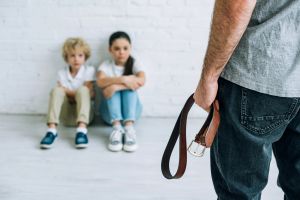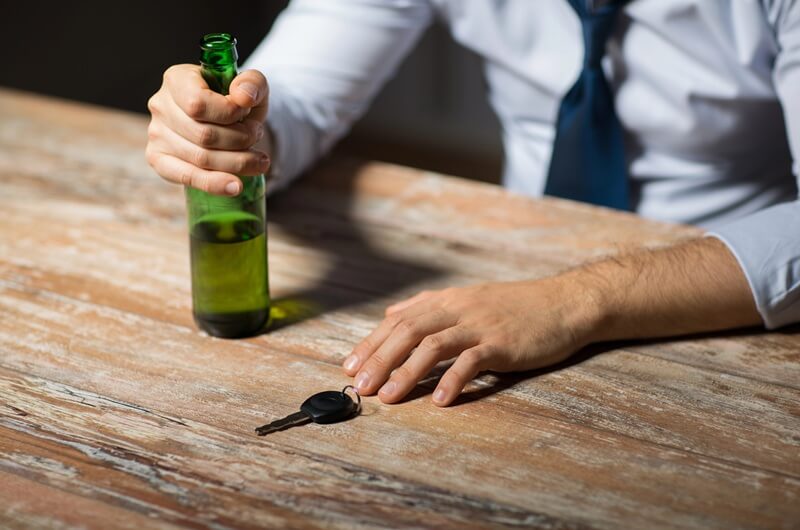Can A Domestic Violence Charge In VA Affect Gun Rights?
Can A Domestic Violence Charge In VA Affect Gun Rights?
Think a domestic violence charge in Virginia is just a legal headache? It can do more than that—it can cost you your right to own or carry a gun. Whether it’s a misdemeanor or a felony, a conviction can lead to a long-term or even permanent loss of your firearm rights.
In this article, we’ll break down how domestic violence charges impact gun ownership in Virginia. You’ll see how the law treats different charges. You’ll also understand what the risks are. A strong defense from an experienced Manassas criminal lawyer can help you fight to keep your rights.
How Virginia Views Domestic Violence
Under the Virginia Code, domestic violence is defined as assault or battery against a family or household member. This includes spouses, ex-spouses, parents, children, roommates, and others living in the same household. Regardless of visible injury, a single incident can result in criminal charges, especially if law enforcement finds probable cause.
Most first-time domestic violence charges are classified as misdemeanors. However, individuals with two or more prior convictions may face a Class 6 felony, which brings harsher penalties and long-term consequences. A misdemeanor can carry significant legal and personal setbacks, especially regarding employment, housing, and civil liberties.
Understanding their classification is essential because these charges can directly impact constitutional rights, including the right to bear arms. The legal consequences vary based on the charge, but both can severely affect the ability to possess or purchase firearms under Virginia law.
Impact On Gun Rights Under Virginia Law
A domestic violence conviction in Virginia can do more than impose jail time or fines. It can restrict fundamental civil rights, including owning or carrying firearms. The severity of the restriction depends primarily on whether the charge results in a misdemeanor or felony conviction.
Misdemeanor Domestic Violence & Firearm Restrictions
Under Virginia law, a person convicted of a misdemeanor domestic violence offense is prohibited from purchasing, possessing, or transporting a firearm for three years. This restriction applies even if the sentence does not include jail time.
For lawful gun owners, this temporary ban represents a significant disruption to daily life and personal security. Violating the terms of this restriction can lead to additional criminal charges and penalties, compounding an already difficult legal situation.
Felony Convictions & Permanent Loss Of Rights
A felony conviction related to domestic violence results in a lifetime ban on firearm possession under Virginia law. Once classified as a felon, an individual loses the right to own, transport, or use any firearm, regardless of the circumstances of the conviction.
The consequences do not end at sentencing—they extend far into the future and across legal jurisdictions. This leads to even stricter regulations at the federal level, which further complicate matters for those with domestic violence records.
Federal Laws Affecting Gun Rights
Even when state penalties seem manageable, federal law can impose additional, long-term restrictions on firearm ownership following a domestic violence conviction. These statutes apply regardless of the state’s classification of the offense and often result in a permanent loss of Second Amendment rights.
The Lautenberg Amendment & Federal Firearm Ban
The Lautenberg Amendment prohibits individuals convicted of misdemeanor domestic violence offenses from possessing firearms. This ban applies even if the conviction occurred years ago or resulted in minimal sentencing. Importantly, it does not require the offense to be classified as a felony for the restriction to take effect.
There is no automatic expiration date for this ban. Restoration requires legal relief at both the state and federal levels, which can be challenging.
Protective Orders & Additional Restrictions
In addition to convictions, individuals subject to specific protective orders are also barred from owning or using firearms under federal law. This includes temporary and final orders from criminal proceedings or civil petitions. Violating this restriction can result in severe federal penalties, including imprisonment.
Federal laws leave little room for error. Even unintentional violations can lead to separate criminal charges, compounding the legal risk. Because of these overlapping legal frameworks, those accused or convicted must rely on an experienced criminal defense attorney who can advocate effectively.
Legal Options You Can Navigate With A Defense Attorney
Dealing with a domestic violence charge can feel overwhelming, especially when key civil rights, like gun ownership, are at risk. Experienced criminal defense lawyers are critical in managing the legal fallout and the long-term implications. From the moment charges are filed, they can help preserve rights, build a defense strategy, and minimize penalties that could otherwise impact a person’s future.
Legal Guidance Through Complex Procedures
Navigating the criminal justice system requires a complete grasp of Virginia’s statutes and courtroom procedures. A skilled attorney can assess the strength of the prosecution’s case, identify procedural errors, and challenge insufficient evidence.
This level of scrutiny often leads to reduced charges, dismissed cases, or alternative sentencing outcomes that may prevent the loss of firearm rights altogether. Legal professionals also handle protective order challenges, negotiate plea deals, and, when necessary, take cases to trial with precision and strategic focus.
Restoration Of Firearm Rights
For individuals already convicted, legal counsel becomes essential in the rights restoration process. This may involve filing a petition for a gubernatorial pardon or applying for civil rights restoration through Virginia’s Secretary of the Commonwealth.
These processes require careful documentation and persuasive legal argumentation. While not all petitions succeed, a proficient defense lawyer profoundly enhances the chances of a favorable result.
The Irving Law Firm Protects Your Rights
At The Irving Law Firm, protecting our clients’ rights is more than a duty—it’s our mission. Domestic violence charges can impact every aspect of a person’s life, from their reputation to their right to own a firearm. That’s why our legal team approaches each case with precision, urgency, and dedication.
The Irving Law Firm has deep roots in the Northern Virginia legal community. Our understanding of local courts, prosecutors, and procedures gives our clients a valuable edge. We meticulously review every detail of your case to identify weaknesses in the prosecution’s argument. Our goal is simple: protect your record, rights, and future.
A conviction isn’t the end of the road. We help clients pursue post-conviction relief, including rights restoration when possible. Whether you’re facing a first-time misdemeanor or a felony accusation, our team is prepared to stand with you at every step.
At The Irving Law Firm, clients are never just case numbers. They are individuals whose futures matter. We invite you to take the next step and discover how committed legal advocacy can make a difference.
A domestic violence conviction in Virginia can severely limit your ability to own or possess firearms, sometimes for life. Both misdemeanor and felony charges carry serious consequences, especially when state and federal laws overlap. Understanding these risks is the first step toward protecting your rights.
The Irving Law Firm is here to guide you through every legal challenge with clarity and dedication. With experienced attorneys on your side, you don’t have to face these consequences alone. Let us help you move forward.






